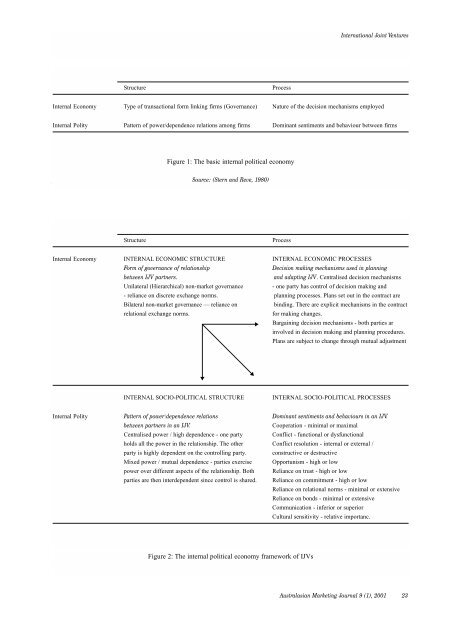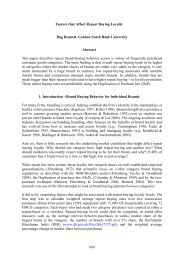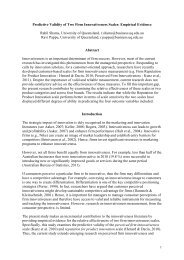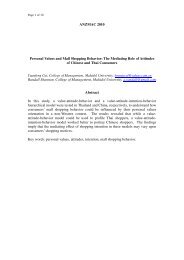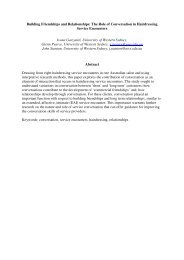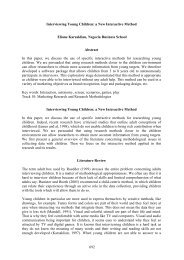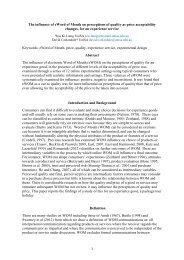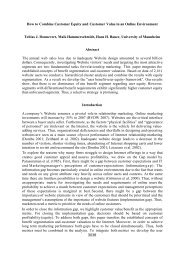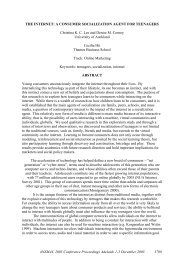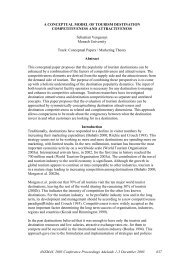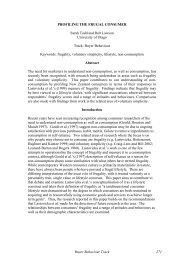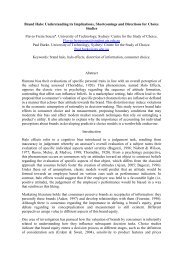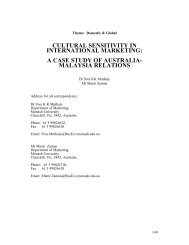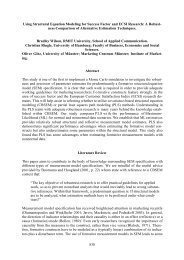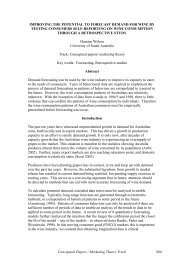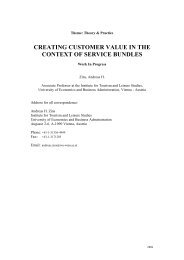amj Australasian Marketing Journal - ANZMAC
amj Australasian Marketing Journal - ANZMAC
amj Australasian Marketing Journal - ANZMAC
Create successful ePaper yourself
Turn your PDF publications into a flip-book with our unique Google optimized e-Paper software.
Structure Process<br />
Structure Process<br />
International Joint Ventures<br />
Internal Economy Type of transactional form linking firms (Governance) Nature of the decision mechanisms employed<br />
Internal Polity Pattern of power/dependence relations among firms Dominant sentiments and behaviour between firms<br />
Figure 1: The basic internal political economy<br />
Source: (Stern and Reve, 1980)<br />
Internal Economy INTERNAL ECONOMIC STRUCTURE INTERNAL ECONOMIC PROCESSES<br />
Form of governance of relationship Decision making mechanisms used in planning<br />
between IJV partners. and adapting IJV. Centralised decision mechanisms<br />
Unilateral (Hierarchical) non-market governance - one party has control of decision making and<br />
- reliance on discrete exchange norms. planning processes. Plans set out in the contract are<br />
Bilateral non-market governance — reliance on binding. There are explicit mechanisms in the contract<br />
relational exchange norms. for making changes.<br />
Bargaining decision mechanisms - both parties ar<br />
involved in decision making and planning procedures.<br />
Plans are subject to change through mutual adjustment<br />
INTERNAL SOCIO-POLITICAL STRUCTURE INTERNAL SOCIO-POLITICAL PROCESSES<br />
Internal Polity Pattern of power/dependence relations Dominant sentiments and behaviours in an IJV.<br />
between partners in an IJV. Cooperation - minimal or maximal<br />
Centralised power / high dependence - one party Conflict - functional or dysfunctional<br />
holds all the power in the relationship. The other Conflict resolution - internal or external /<br />
party is highly dependent on the controlling party. constructive or destructive<br />
Mixed power / mutual dependence - parties exercise Opportunism - high or low<br />
power over different aspects of the relationship. Both Reliance on trust - high or low<br />
parties are then interdependent since control is shared. Reliance on commitment - high or low<br />
Reliance on relational norms - minimal or extensive<br />
Reliance on bonds - minimal or extensive<br />
Communication - inferior or superior<br />
Cultural sensitivity - relative importanc.<br />
Figure 2: The internal political economy framework of IJVs<br />
<strong>Australasian</strong> <strong>Marketing</strong> <strong>Journal</strong> 9 (1), 2001 23


